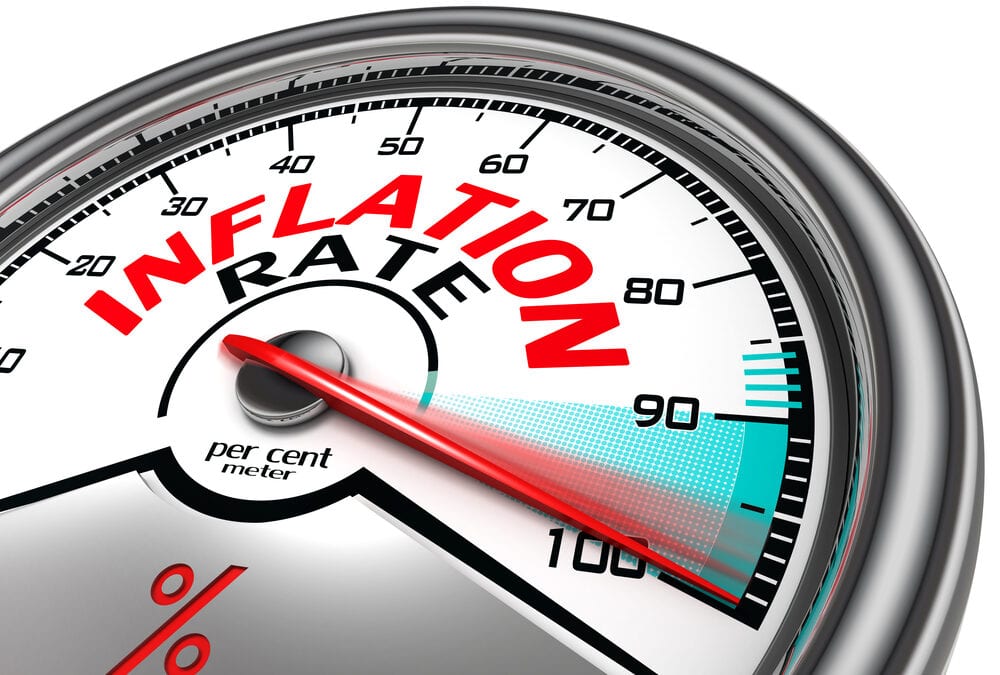
Is Rising Inflation Bad News Or Good?
According to the Office for National Statistics, UK inflation more than doubled from March (0.7%) to April (1.5%). At any other time, this data might have been met with gasps of pure horror. Right now, however, the situation is a lot more complicated. Here’s a quick guide to what you need to know.
The world is finally getting back to business
COVID19 is not yet consigned to oblivion but it’s getting there. This is allowing the world, in general, to get back to business. Of course, with so many businesses having been mothballed for most, if not all, of the last year or so, there’s a lot of catching up to do. In particular, the logistics industry needs to deal with a serious backlog – and the recent issue with the Suez Canal didn’t help with that.
This means that right now supply-side issues are limiting the availability of some items right at a time when demand is increasing. Businesses are opening up again, so more jobs are becoming available. Furloughed workers are returning and remote workers are starting to go back to the office at least part of the time. In some cases at least, this will mean them spending money on purchases such as clothes, transport and convenience food and drink.
Overall, therefore, it’s hardly a surprise that UK inflation has shot up. In fact, it would arguably have been more of a surprise if it hadn’t. That doesn’t mean that the increase is welcome news to everyone. As always, there are two sides to every story.
Why inflation is bad news
Inflation basically means rising prices. If you’re in strong economic shape, then you can absorb them. If, however, you’re not, then they can be extremely painful. The financial impact of the pandemic has been extremely uneven, to put it mildly. A few people have, quite bluntly, done extremely well out of it. Most people have been able to get by, albeit possibly only just.
For some people, however, the pandemic has wrought serious havoc on their finances. What’s more, a lot of these people would probably have been living on the financial edge anyway. These people may have to deal with prices rising ahead of their income. They may also face the prospect of interest rates rising in line with inflation. This would make using credit as a stopgap even more expensive.
If interest rates do go up, then the cost of mortgages may go up with them. This is, however, also variable, at least in the short term. If new buyers have opted for fixed-interest loans then interest-rate changes will not affect them until the fixed-term runs out. Established buyers with variable-interest loans could switch to a new deal. Those most in danger, therefore, are recent buyers with variable-rate loans.
Why inflation is good news
Inflation encourages people to get out and spend. In short, the message is that you can either buy now or risk the price going up later. Obviously, there are limits to this. If people can’t afford something now then they can’t buy it regardless of whether or not it seems like a good deal. What’s more, if inflation gets seriously out of control then it may result in major social upheaval.
The UK is, however, a long way off this. Although 1.5% is way above 0.7%, it’s still comfortably below the Bank of England’s inflation target of 2% with a 1% margin of error in either direction. In fact, 0.7% inflation was actually too low to be desirable. Under normal circumstances, the Bank of England would have been expected to take corrective action.
In short, therefore, the surge in inflation is essentially just a sign that the UK’s economy is starting to get back to where it should be. That fact should be welcomed by everyone.
Think carefully before securing other debts against your home. Your home may be repossessed if you do not keep up
repayments on your mortgage
Please contact us for any more information


Recent Comments